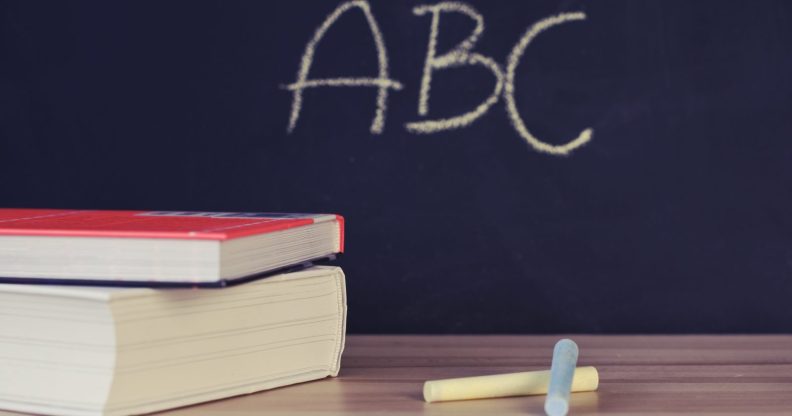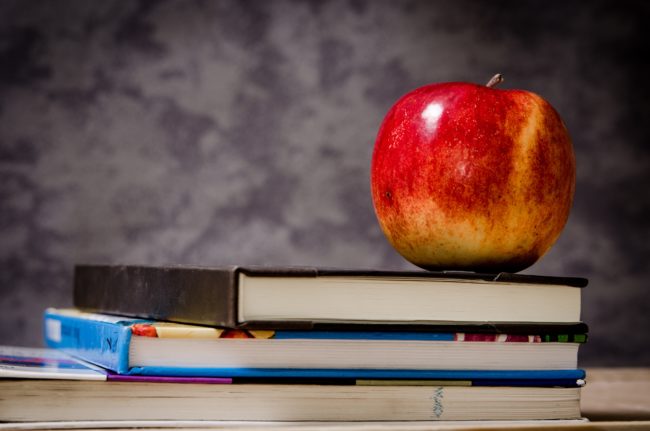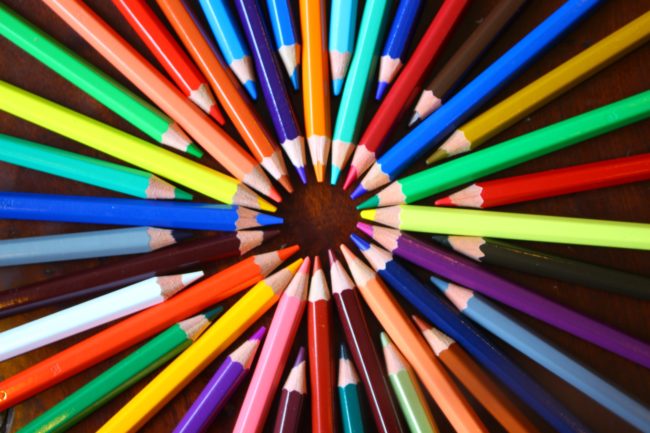Teach about LGBT issues in Maths and Science lessons, report says

Illinois public schools will now teach LGBT+ history. (Pexels)
A new LGBT-inclusive curriculum would see LGBT people reflected across all subjects at school.
Stonewall launched the guide, sponsored by Pearson, which is designed to help schools build an LGBT inclusive curriculum which reflects the diversity of people’s lives and experiences in modern Britain.
The guide includes suggestions for ways that LGBT issues can be reflected in secondary school subjects.
For example, the guidance on Maths suggests a lesson on codebreaking – incorporating the story of computing pioneer Alan Turing.
It says: “Explain that Alan Turing was a famous mathematician who played a vital role in cracking the Enigma code during World War II.
“Provide pupils with some information about Alan Turing’s life, including the arrest and trial for his relationship with another man. You could also use the [discussion] to talk about the historical treatment of gay people by the secret services.”
The Geography lesson plan on migration suggests: “Give pupils a world map of LGBT rights worldwide from the International Lesbian, Gay, Bisexual, Trans and Intersex Association (ILGA).
“Print the map in colour but block out the colour code from the map.
“Explain that this is a map of LGBT rights across the world. Give pupils the task of working out individually, or in small groups, what they think the colours represent.”

It adds: “Provide pupils with examples of different groups of people, including LGBT people. Decide what push and pull factors might apply to the different groups.
“You could also adapt this lesson to focus on a specific push or pull factor, for example forced migration, asylum, and the persecution of minorities, including LGBT people.”
There are also suggestions for teaching about LGBT issues in Science, Art, Drama, English, PE, and Religious Studies.
The guide states: “An inclusive curriculum reflects the diversity of pupils’ lives and experiences in modern Britain.
“It helps all pupils feel included, making them much more likely to engage with their learning and perform better. But when it comes to learning about LGBT people and themes, many pupils report that these are absent from their curriculum.
“Stonewall’s 2017 School Report, a survey of over 3,700 LGBT pupils in Britain’s secondary schools, found that two in five LGBT pupils are never taught anything about LGBT matters in school or college.
“This negatively impacts upon all pupils. When LGBT people and their experiences aren’t discussed at school, it gives the impression that LGBT people don’t exist, or that these issues shouldn’t be discussed at
school. It prevents pupils from understanding and celebrating difference.
“When a curriculum reflects the diversity of the world we live in, including LGBT people, all pupils can be supported to develop inclusive and accepting attitudes towards those who are different to them, and feel
proud of the things that make them different themselves.”

Ruth Hunt, Chief Executive at Stonewall, said: “How young people see themselves, each other and the world around them is shaped by what they learn about at school.
“For every young person to be prepared for life in modern Britain, it’s vital that their curriculum reflects the full diversity of the world they live in. When pupils are supported to understand diversity and celebrate
difference, they can develop accepting attitudes towards those who are different to them, and feel proud of the things that make them different themselves.
“This includes teaching about lesbian, gay, bi and trans (LGBT) people and themes. While Britain has made huge strides towards LGBT equality in recent decades, anti-LGBT bullying and language unfortunately
remain commonplace in Britain’s schools. A crucial part of tackling this problem is delivering a curriculum that includes LGBT people and their experiences.
“Not only does this support all pupils to understand and celebrate difference, but it also sends a powerful message of inclusion to pupils and staff who are LGBT, or who have LGBT family or friends. It’s not surprising
that in schools where LGBT pupils see their lives and identities reflected in what they learn, those pupils are less likely to be bullied for being LGBT and more likely to feel part of their school community.
“This guide will show you how you can easily and naturally integrate LGBT issues throughout your curriculum. It provides tips, prompts and lesson ideas that can be incorporated into existing schemes of work.
We are hugely grateful to Pearson for sponsoring this guide. We hope you find it helpful in your work to ensure that all your pupils feel included, accepted and supported to reach their full potential.”

Startup Stock Photos
Stonewall’s Director of Education and Youth, Hannah Kibirige said: “This new guide enables teachers to create lessons which not only include, but celebrate lesbian, gay, bi and trans people, their experiences and their history.
“Not only does this encourage all young people to understand the importance of valuing difference, but it also ensures that young LGBT people see themselves reflected in their learning. Steps like this help create inclusive school environments and, importantly, also help to tackle bullying.
“Stonewall’s School Report 2017 reveals that two in five LGBT pupils are never taught anything about LGBT issues in school or college. Worryingly, nearly half of LGBT pupils are bullied at school, with trans pupils at particular risk.
“Stonewall is currently campaigning for LGBT-inclusive relationships and sex education and we urge everyone to take part in the Government’s current public consultation. More information can be found on our website here.”
Education publisher Pearson has supported this Guide as part of its ongoing relationship with Stonewall, of which it is a founding partner, and its wider objective to ensure all of its products and services are inclusive of all groups in society.
Rod Bristow, Pearson President for Core Markets said: “We are proud to support Stonewall in the publication of this Guide – and to support all schools and teachers in engaging with a curriculum that reflects the diversity of the world we live in today. Furthermore, we will use this Guide to help update our own products and resources to ensure they are LGBT inclusive.”
The government is currently consulting on guidance for LGBT-inclusive sex and relationship education.

